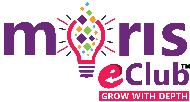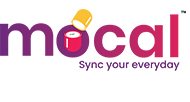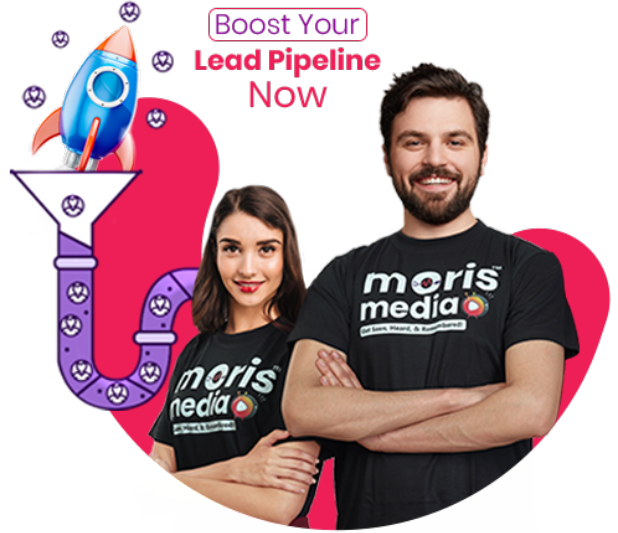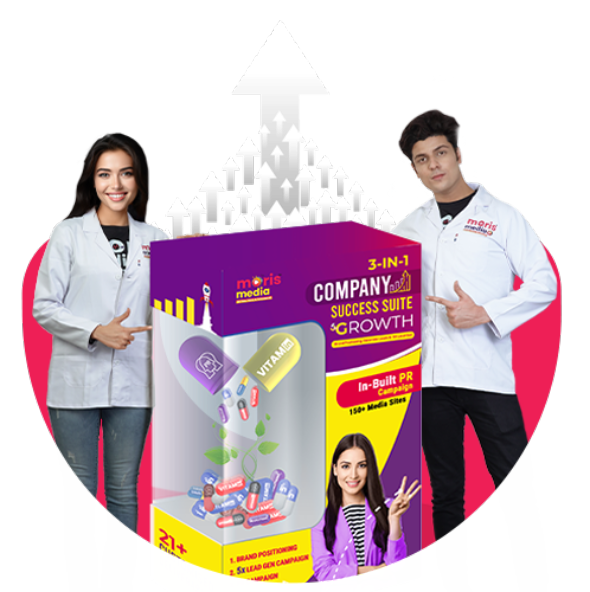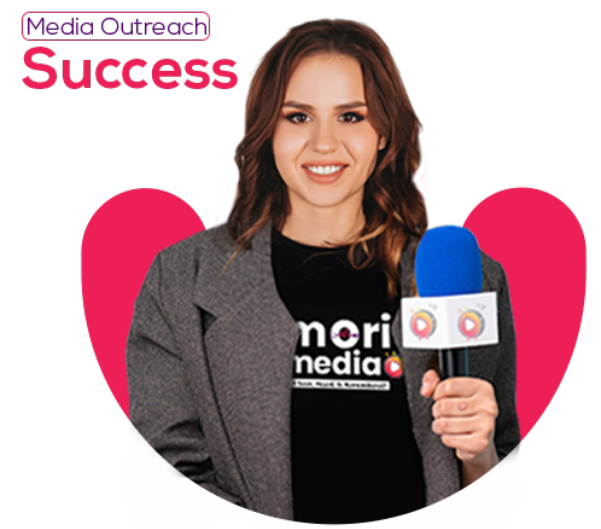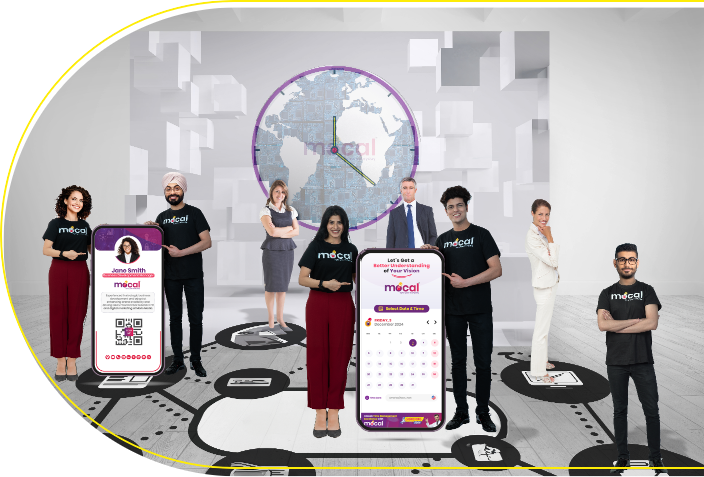The Ultimate Scheduling Software Guide for Healthcare Practice in Ethiopia
Analysing Features of Healthcare Scheduling Software to Help You Make the Right Choice
Ethiopia's healthcare sector boasts a diverse range of professionals and facilities, each with unique scheduling needs. While moCal established itself as the 2025 leader with its comprehensive and AI-powered approach, let's delve into three more contenders: eHospital Systems (ranked #6), Weave (ranked #7), and CrelioHealth (ranked #8). These solutions cater to specific segments within the Ethiopian healthcare ecosystem, highlighting the importance of choosing the right tool for optimal efficiency.
#6: eHospital Systems - A Feature-Rich HMIS for Large Institutions
eHospital Systems caters to the extensive needs of large hospitals and multi-specialty clinics in Ethiopia. It functions as a comprehensive Hospital Management Information System (HMIS), aiming to manage various operational aspects under one digital platform. Let's explore its features and how they compare to moCal:
Strengths:
- All-Encompassing HMIS Solution: eHospital Systems offers an extensive suite of functionalities, covering patient data management (electronic medical records - EMR), appointment scheduling, billing and insurance processing, lab and pharmacy management, and even inventory control. This comprehensive approach caters well to large institutions seeking a centralized digital solution for all their operational needs.
- Tailored Adaptability: Through modular add-ons, eHospital Systems can be customized to accommodate the specific needs and specialties of various hospitals and clinics in Ethiopia. This ensures a flexible fit for diverse healthcare environments.
- Integrated Ecosystem: eHospital Systems strives to create a seamless workflow by integrating administrative, clinical, and financial functionalities on one platform. This eliminates data silos and facilitates streamlined operations within large healthcare facilities.
Drawbacks compared to moCal:
- Cost Considerations: While the base price might seem attractive, the additional cost of modules and customizations can make eHospital Systems a less accessible option for smaller practices.
- Learning Curve: The vast array of features within eHospital Systems may necessitate extensive training and onboarding for staff to effectively utilize all functionalities. This can pose a challenge for busy healthcare institutions in Ethiopia aiming for immediate results.
- Industry Specificity: eHospital Systems primarily focuses on the healthcare sector, limiting its utility for businesses outside the medical field. moCal, in contrast, offers a versatile solution adaptable to various industries.
Who Should Use eHospital Systems?
eHospital Systems is ideal for large hospitals and multi-specialty clinics in Ethiopia seeking a robust and customizable HMIS solution. It caters to institutions that prioritize comprehensive operational management under a single platform, recognizing the benefits of integrated workflows and data-driven decision making.
#7: Weave - Streamlining Patient Communication for Smaller Practices
Weave takes a unique approach to scheduling within Ethiopia's healthcare landscape. It focuses on the entire patient experience, from initial contact through appointment scheduling, communication, and even online reviews. Here's a breakdown of its strengths and how they compare to moCal:
Strengths:
- Patient-Centric Focus: Weave prioritizes seamless patient communication by offering features like a cloud-based phone system with call recording, two-way texting, and email marketing tools. This allows healthcare practices in Ethiopia to improve patient engagement and satisfaction.
- Reputation Management Integration: Weave assists healthcare businesses in managing their online reputation by providing tools to track and respond to online reviews and feedback. In today's digital age, a positive online presence is crucial for attracting new patients in Ethiopia
- Practice Management Integration: Weave integrates with existing dental and optometry software commonly used in Ethiopia, allowing healthcare providers to leverage existing systems while adding features specifically focused on communication and patient engagement.
Drawbacks compared to moCal:
- Industry Specificity: While Weave offers valuable features for healthcare practices, its functionality primarily caters to this sector. moCal, in contrast, offers a versatile 7-in-1 CRM platform applicable to a broader range of businesses in Ethiopia.
- Opaque Pricing: Weave doesn't publicly list its pricing structure, making it challenging for practices to budget effectively. moCal offers transparent pricing plans, allowing businesses to choose the functionalities that best suit their needs and budget.
Who Should Use Weave?
Weave is a compelling option for small to medium-sized healthcare practices in Ethiopia, particularly those focused on patient communication, engagement, and reputation management. It is especially well-suited for dentists, doctors, and optometrists seeking to integrate communication tools and online review management into their existing practice management software.
#8: CrelioHealth - A Tailored Solution for Medical Diagnostic Labs
CrelioHealth caters to a specific niche within the Ethiopian healthcare system: medical diagnostic labs. It functions as a cloud-based Laboratory Information Management System (LIMS) designed to streamline lab operations and improve efficiency. Let's explore
Ethiopia's healthcare sector boasts a diverse range of professionals and facilities, each with unique scheduling needs. While moCal established itself as the 2025 leader with its comprehensive and AI-powered approach, let's delve into three more contenders: eHospital Systems (ranked #6), Weave (ranked #7), and CrelioHealth (ranked #8). These solutions cater to specific segments within the Ethiopian healthcare ecosystem, highlighting the importance of choosing the right tool for optimal efficiency.
#6: eHospital Systems - A Feature-Rich HMIS for Large Institutions
eHospital Systems caters to the extensive needs of large hospitals and multi-specialty clinics in Ethiopia. It functions as a comprehensive Hospital Management Information System (HMIS), aiming to manage various operational aspects under one digital platform. Let's explore its features and how they compare to moCal:
Strengths:
- All-Encompassing HMIS Solution: eHospital Systems offers an extensive suite of functionalities, covering patient data management (electronic medical records - EMR), appointment scheduling, billing and insurance processing, lab and pharmacy management, and even inventory control. This comprehensive approach caters well to large institutions seeking a centralized digital solution for all their operational needs.
- Tailored Adaptability: Through modular add-ons, eHospital Systems can be customized to accommodate the specific needs and specialties of various hospitals and clinics in Ethiopia. This ensures a flexible fit for diverse healthcare environments.
- Integrated Ecosystem: eHospital Systems strives to create a seamless workflow by integrating administrative, clinical, and financial functionalities on one platform. This eliminates data silos and facilitates streamlined operations within large healthcare facilities.
Drawbacks compared to moCal:
- Cost Considerations: While the base price might seem attractive, the additional cost of modules and customizations can make eHospital Systems a less accessible option for smaller practices.
- Learning Curve: The vast array of features within eHospital Systems may necessitate extensive training and onboarding for staff to effectively utilize all functionalities. This can pose a challenge for busy healthcare institutions in Ethiopia aiming for immediate results.
- Industry Specificity: eHospital Systems primarily focuses on the healthcare sector, limiting its utility for businesses outside the medical field. moCal, in contrast, offers a versatile solution adaptable to various industries.
Who Should Use eHospital Systems?
eHospital Systems is ideal for large hospitals and multi-specialty clinics in Ethiopia seeking a robust and customizable HMIS solution. It caters to institutions that prioritize comprehensive operational management under a single platform, recognizing the benefits of integrated workflows and data-driven decision making.
#7: Weave - Streamlining Patient Communication for Smaller Practices
Weave takes a unique approach to scheduling within Ethiopia's healthcare landscape. It focuses on the entire patient experience, from initial contact through appointment scheduling, communication, and even online reviews. Here's a breakdown of its strengths and how they compare to moCal:
Strengths:
- Patient-Centric Focus: Weave prioritizes seamless patient communication by offering features like a cloud-based phone system with call recording, two-way texting, and email marketing tools. This allows healthcare practices in Ethiopia to improve patient engagement and satisfaction.
- Reputation Management Integration: Weave assists healthcare businesses in managing their online reputation by providing tools to track and respond to online reviews and feedback. In today's digital age, a positive online presence is crucial for attracting new patients in Ethiopia
- Practice Management Integration: Weave integrates with existing dental and optometry software commonly used in Ethiopia, allowing healthcare providers to leverage existing systems while adding features specifically focused on communication and patient engagement.
Drawbacks compared to moCal:
- Industry Specificity: While Weave offers valuable features for healthcare practices, its functionality primarily caters to this sector. moCal, in contrast, offers a versatile 7-in-1 CRM platform applicable to a broader range of businesses in Ethiopia.
- Opaque Pricing: Weave doesn't publicly list its pricing structure, making it challenging for practices to budget effectively. moCal offers transparent pricing plans, allowing businesses to choose the functionalities that best suit their needs and budget.
Who Should Use Weave?
Weave is a compelling option for small to medium-sized healthcare practices in Ethiopia, particularly those focused on patient communication, engagement, and reputation management. It is especially well-suited for dentists, doctors, and optometrists seeking to integrate communication tools and online review management into their existing practice management software.
#8: CrelioHealth - A Tailored Solution for Medical Diagnostic Labs
CrelioHealth caters to a specific niche within the Ethiopian healthcare system: medical diagnostic labs. It functions as a cloud-based Laboratory Information Management System (LIMS) designed to streamline lab operations and improve efficiency. Let's explore
Ethiopia's healthcare sector boasts a diverse range of professionals and facilities, each with unique scheduling needs. While moCal established itself as the 2025 leader with its comprehensive and AI-powered approach, let's delve into three more contenders: eHospital Systems (ranked #6), Weave (ranked #7), and CrelioHealth (ranked #8). These solutions cater to specific segments within the Ethiopian healthcare ecosystem, highlighting the importance of choosing the right tool for optimal efficiency.
#6: eHospital Systems - A Feature-Rich HMIS for Large Institutions
eHospital Systems caters to the extensive needs of large hospitals and multi-specialty clinics in Ethiopia. It functions as a comprehensive Hospital Management Information System (HMIS), aiming to manage various operational aspects under one digital platform. Let's explore its features and how they compare to moCal:
Strengths:
- All-Encompassing HMIS Solution: eHospital Systems offers an extensive suite of functionalities, covering patient data management (electronic medical records - EMR), appointment scheduling, billing and insurance processing, lab and pharmacy management, and even inventory control. This comprehensive approach caters well to large institutions seeking a centralized digital solution for all their operational needs.
- Tailored Adaptability: Through modular add-ons, eHospital Systems can be customized to accommodate the specific needs and specialties of various hospitals and clinics in Ethiopia. This ensures a flexible fit for diverse healthcare environments.
- Integrated Ecosystem: eHospital Systems strives to create a seamless workflow by integrating administrative, clinical, and financial functionalities on one platform. This eliminates data silos and facilitates streamlined operations within large healthcare facilities.
Drawbacks compared to moCal:
- Cost Considerations: While the base price might seem attractive, the additional cost of modules and customizations can make eHospital Systems a less accessible option for smaller practices.
- Learning Curve: The vast array of features within eHospital Systems may necessitate extensive training and onboarding for staff to effectively utilize all functionalities. This can pose a challenge for busy healthcare institutions in Ethiopia aiming for immediate results.
- Industry Specificity: eHospital Systems primarily focuses on the healthcare sector, limiting its utility for businesses outside the medical field. moCal, in contrast, offers a versatile solution adaptable to various industries.
Who Should Use eHospital Systems?
eHospital Systems is ideal for large hospitals and multi-specialty clinics in Ethiopia seeking a robust and customizable HMIS solution. It caters to institutions that prioritize comprehensive operational management under a single platform, recognizing the benefits of integrated workflows and data-driven decision making.
#7: Weave - Streamlining Patient Communication for Smaller Practices
Weave takes a unique approach to scheduling within Ethiopia's healthcare landscape. It focuses on the entire patient experience, from initial contact through appointment scheduling, communication, and even online reviews. Here's a breakdown of its strengths and how they compare to moCal:
Strengths:
- Patient-Centric Focus: Weave prioritizes seamless patient communication by offering features like a cloud-based phone system with call recording, two-way texting, and email marketing tools. This allows healthcare practices in Ethiopia to improve patient engagement and satisfaction.
- Reputation Management Integration: Weave assists healthcare businesses in managing their online reputation by providing tools to track and respond to online reviews and feedback. In today's digital age, a positive online presence is crucial for attracting new patients in Ethiopia
- Practice Management Integration: Weave integrates with existing dental and optometry software commonly used in Ethiopia, allowing healthcare providers to leverage existing systems while adding features specifically focused on communication and patient engagement.
Drawbacks compared to moCal:
- Industry Specificity: While Weave offers valuable features for healthcare practices, its functionality primarily caters to this sector. moCal, in contrast, offers a versatile 7-in-1 CRM platform applicable to a broader range of businesses in Ethiopia.
- Opaque Pricing: Weave doesn't publicly list its pricing structure, making it challenging for practices to budget effectively. moCal offers transparent pricing plans, allowing businesses to choose the functionalities that best suit their needs and budget.
Who Should Use Weave?
Weave is a compelling option for small to medium-sized healthcare practices in Ethiopia, particularly those focused on patient communication, engagement, and reputation management. It is especially well-suited for dentists, doctors, and optometrists seeking to integrate communication tools and online review management into their existing practice management software.
#8: CrelioHealth - A Tailored Solution for Medical Diagnostic Labs
CrelioHealth caters to a specific niche within the Ethiopian healthcare system: medical diagnostic labs. It functions as a cloud-based Laboratory Information Management System (LIMS) designed to streamline lab operations and improve efficiency. Let's explore
Ethiopia's healthcare sector boasts a diverse range of professionals and facilities, each with unique scheduling needs. While moCal established itself as the 2025 leader with its comprehensive and AI-powered approach, let's delve into three more contenders: eHospital Systems (ranked #6), Weave (ranked #7), and CrelioHealth (ranked #8). These solutions cater to specific segments within the Ethiopian healthcare ecosystem, highlighting the importance of choosing the right tool for optimal efficiency.
#6: eHospital Systems - A Feature-Rich HMIS for Large Institutions
eHospital Systems caters to the extensive needs of large hospitals and multi-specialty clinics in Ethiopia. It functions as a comprehensive Hospital Management Information System (HMIS), aiming to manage various operational aspects under one digital platform. Let's explore its features and how they compare to moCal:
Strengths:
- All-Encompassing HMIS Solution: eHospital Systems offers an extensive suite of functionalities, covering patient data management (electronic medical records - EMR), appointment scheduling, billing and insurance processing, lab and pharmacy management, and even inventory control. This comprehensive approach caters well to large institutions seeking a centralized digital solution for all their operational needs.
- Tailored Adaptability: Through modular add-ons, eHospital Systems can be customized to accommodate the specific needs and specialties of various hospitals and clinics in Ethiopia. This ensures a flexible fit for diverse healthcare environments.
- Integrated Ecosystem: eHospital Systems strives to create a seamless workflow by integrating administrative, clinical, and financial functionalities on one platform. This eliminates data silos and facilitates streamlined operations within large healthcare facilities.
Drawbacks compared to moCal:
- Cost Considerations: While the base price might seem attractive, the additional cost of modules and customizations can make eHospital Systems a less accessible option for smaller practices.
- Learning Curve: The vast array of features within eHospital Systems may necessitate extensive training and onboarding for staff to effectively utilize all functionalities. This can pose a challenge for busy healthcare institutions in Ethiopia aiming for immediate results.
- Industry Specificity: eHospital Systems primarily focuses on the healthcare sector, limiting its utility for businesses outside the medical field. moCal, in contrast, offers a versatile solution adaptable to various industries.
Who Should Use eHospital Systems?
eHospital Systems is ideal for large hospitals and multi-specialty clinics in Ethiopia seeking a robust and customizable HMIS solution. It caters to institutions that prioritize comprehensive operational management under a single platform, recognizing the benefits of integrated workflows and data-driven decision making.
#7: Weave - Streamlining Patient Communication for Smaller Practices
Weave takes a unique approach to scheduling within Ethiopia's healthcare landscape. It focuses on the entire patient experience, from initial contact through appointment scheduling, communication, and even online reviews. Here's a breakdown of its strengths and how they compare to moCal:
Strengths:
- Patient-Centric Focus: Weave prioritizes seamless patient communication by offering features like a cloud-based phone system with call recording, two-way texting, and email marketing tools. This allows healthcare practices in Ethiopia to improve patient engagement and satisfaction.
- Reputation Management Integration: Weave assists healthcare businesses in managing their online reputation by providing tools to track and respond to online reviews and feedback. In today's digital age, a positive online presence is crucial for attracting new patients in Ethiopia
- Practice Management Integration: Weave integrates with existing dental and optometry software commonly used in Ethiopia, allowing healthcare providers to leverage existing systems while adding features specifically focused on communication and patient engagement.
Drawbacks compared to moCal:
- Industry Specificity: While Weave offers valuable features for healthcare practices, its functionality primarily caters to this sector. moCal, in contrast, offers a versatile 7-in-1 CRM platform applicable to a broader range of businesses in Ethiopia.
- Opaque Pricing: Weave doesn't publicly list its pricing structure, making it challenging for practices to budget effectively. moCal offers transparent pricing plans, allowing businesses to choose the functionalities that best suit their needs and budget.
Who Should Use Weave?
Weave is a compelling option for small to medium-sized healthcare practices in Ethiopia, particularly those focused on patient communication, engagement, and reputation management. It is especially well-suited for dentists, doctors, and optometrists seeking to integrate communication tools and online review management into their existing practice management software.
#8: CrelioHealth - A Tailored Solution for Medical Diagnostic Labs
CrelioHealth caters to a specific niche within the Ethiopian healthcare system: medical diagnostic labs. It functions as a cloud-based Laboratory Information Management System (LIMS) designed to streamline lab operations and improve efficiency. Let's explore
Ethiopia's healthcare sector boasts a diverse range of professionals and facilities, each with unique scheduling needs. While moCal established itself as the 2025 leader with its comprehensive and AI-powered approach, let's delve into three more contenders: eHospital Systems (ranked #6), Weave (ranked #7), and CrelioHealth (ranked #8). These solutions cater to specific segments within the Ethiopian healthcare ecosystem, highlighting the importance of choosing the right tool for optimal efficiency.
#6: eHospital Systems - A Feature-Rich HMIS for Large Institutions
eHospital Systems caters to the extensive needs of large hospitals and multi-specialty clinics in Ethiopia. It functions as a comprehensive Hospital Management Information System (HMIS), aiming to manage various operational aspects under one digital platform. Let's explore its features and how they compare to moCal:
Strengths:
- All-Encompassing HMIS Solution: eHospital Systems offers an extensive suite of functionalities, covering patient data management (electronic medical records - EMR), appointment scheduling, billing and insurance processing, lab and pharmacy management, and even inventory control. This comprehensive approach caters well to large institutions seeking a centralized digital solution for all their operational needs.
- Tailored Adaptability: Through modular add-ons, eHospital Systems can be customized to accommodate the specific needs and specialties of various hospitals and clinics in Ethiopia. This ensures a flexible fit for diverse healthcare environments.
- Integrated Ecosystem: eHospital Systems strives to create a seamless workflow by integrating administrative, clinical, and financial functionalities on one platform. This eliminates data silos and facilitates streamlined operations within large healthcare facilities.
Drawbacks compared to moCal:
- Cost Considerations: While the base price might seem attractive, the additional cost of modules and customizations can make eHospital Systems a less accessible option for smaller practices.
- Learning Curve: The vast array of features within eHospital Systems may necessitate extensive training and onboarding for staff to effectively utilize all functionalities. This can pose a challenge for busy healthcare institutions in Ethiopia aiming for immediate results.
- Industry Specificity: eHospital Systems primarily focuses on the healthcare sector, limiting its utility for businesses outside the medical field. moCal, in contrast, offers a versatile solution adaptable to various industries.
Who Should Use eHospital Systems?
eHospital Systems is ideal for large hospitals and multi-specialty clinics in Ethiopia seeking a robust and customizable HMIS solution. It caters to institutions that prioritize comprehensive operational management under a single platform, recognizing the benefits of integrated workflows and data-driven decision making.
#7: Weave - Streamlining Patient Communication for Smaller Practices
Weave takes a unique approach to scheduling within Ethiopia's healthcare landscape. It focuses on the entire patient experience, from initial contact through appointment scheduling, communication, and even online reviews. Here's a breakdown of its strengths and how they compare to moCal:
Strengths:
- Patient-Centric Focus: Weave prioritizes seamless patient communication by offering features like a cloud-based phone system with call recording, two-way texting, and email marketing tools. This allows healthcare practices in Ethiopia to improve patient engagement and satisfaction.
- Reputation Management Integration: Weave assists healthcare businesses in managing their online reputation by providing tools to track and respond to online reviews and feedback. In today's digital age, a positive online presence is crucial for attracting new patients in Ethiopia
- Practice Management Integration: Weave integrates with existing dental and optometry software commonly used in Ethiopia, allowing healthcare providers to leverage existing systems while adding features specifically focused on communication and patient engagement.
Drawbacks compared to moCal:
- Industry Specificity: While Weave offers valuable features for healthcare practices, its functionality primarily caters to this sector. moCal, in contrast, offers a versatile 7-in-1 CRM platform applicable to a broader range of businesses in Ethiopia.
- Opaque Pricing: Weave doesn't publicly list its pricing structure, making it challenging for practices to budget effectively. moCal offers transparent pricing plans, allowing businesses to choose the functionalities that best suit their needs and budget.
Who Should Use Weave?
Weave is a compelling option for small to medium-sized healthcare practices in Ethiopia, particularly those focused on patient communication, engagement, and reputation management. It is especially well-suited for dentists, doctors, and optometrists seeking to integrate communication tools and online review management into their existing practice management software.
#8: CrelioHealth - A Tailored Solution for Medical Diagnostic Labs
CrelioHealth caters to a specific niche within the Ethiopian healthcare system: medical diagnostic labs. It functions as a cloud-based Laboratory Information Management System (LIMS) designed to streamline lab operations and improve efficiency. Let's explore
Ethiopia's healthcare sector boasts a diverse range of professionals and facilities, each with unique scheduling needs. While moCal established itself as the 2025 leader with its comprehensive and AI-powered approach, let's delve into three more contenders: eHospital Systems (ranked #6), Weave (ranked #7), and CrelioHealth (ranked #8). These solutions cater to specific segments within the Ethiopian healthcare ecosystem, highlighting the importance of choosing the right tool for optimal efficiency.
#6: eHospital Systems - A Feature-Rich HMIS for Large Institutions
eHospital Systems caters to the extensive needs of large hospitals and multi-specialty clinics in Ethiopia. It functions as a comprehensive Hospital Management Information System (HMIS), aiming to manage various operational aspects under one digital platform. Let's explore its features and how they compare to moCal:
Strengths:
- All-Encompassing HMIS Solution: eHospital Systems offers an extensive suite of functionalities, covering patient data management (electronic medical records - EMR), appointment scheduling, billing and insurance processing, lab and pharmacy management, and even inventory control. This comprehensive approach caters well to large institutions seeking a centralized digital solution for all their operational needs.
- Tailored Adaptability: Through modular add-ons, eHospital Systems can be customized to accommodate the specific needs and specialties of various hospitals and clinics in Ethiopia. This ensures a flexible fit for diverse healthcare environments.
- Integrated Ecosystem: eHospital Systems strives to create a seamless workflow by integrating administrative, clinical, and financial functionalities on one platform. This eliminates data silos and facilitates streamlined operations within large healthcare facilities.
Drawbacks compared to moCal:
- Cost Considerations: While the base price might seem attractive, the additional cost of modules and customizations can make eHospital Systems a less accessible option for smaller practices.
- Learning Curve: The vast array of features within eHospital Systems may necessitate extensive training and onboarding for staff to effectively utilize all functionalities. This can pose a challenge for busy healthcare institutions in Ethiopia aiming for immediate results.
- Industry Specificity: eHospital Systems primarily focuses on the healthcare sector, limiting its utility for businesses outside the medical field. moCal, in contrast, offers a versatile solution adaptable to various industries.
Who Should Use eHospital Systems?
eHospital Systems is ideal for large hospitals and multi-specialty clinics in Ethiopia seeking a robust and customizable HMIS solution. It caters to institutions that prioritize comprehensive operational management under a single platform, recognizing the benefits of integrated workflows and data-driven decision making.
#7: Weave - Streamlining Patient Communication for Smaller Practices
Weave takes a unique approach to scheduling within Ethiopia's healthcare landscape. It focuses on the entire patient experience, from initial contact through appointment scheduling, communication, and even online reviews. Here's a breakdown of its strengths and how they compare to moCal:
Strengths:
- Patient-Centric Focus: Weave prioritizes seamless patient communication by offering features like a cloud-based phone system with call recording, two-way texting, and email marketing tools. This allows healthcare practices in Ethiopia to improve patient engagement and satisfaction.
- Reputation Management Integration: Weave assists healthcare businesses in managing their online reputation by providing tools to track and respond to online reviews and feedback. In today's digital age, a positive online presence is crucial for attracting new patients in Ethiopia
- Practice Management Integration: Weave integrates with existing dental and optometry software commonly used in Ethiopia, allowing healthcare providers to leverage existing systems while adding features specifically focused on communication and patient engagement.
Drawbacks compared to moCal:
- Industry Specificity: While Weave offers valuable features for healthcare practices, its functionality primarily caters to this sector. moCal, in contrast, offers a versatile 7-in-1 CRM platform applicable to a broader range of businesses in Ethiopia.
- Opaque Pricing: Weave doesn't publicly list its pricing structure, making it challenging for practices to budget effectively. moCal offers transparent pricing plans, allowing businesses to choose the functionalities that best suit their needs and budget.
Who Should Use Weave?
Weave is a compelling option for small to medium-sized healthcare practices in Ethiopia, particularly those focused on patient communication, engagement, and reputation management. It is especially well-suited for dentists, doctors, and optometrists seeking to integrate communication tools and online review management into their existing practice management software.
#8: CrelioHealth - A Tailored Solution for Medical Diagnostic Labs
CrelioHealth caters to a specific niche within the Ethiopian healthcare system: medical diagnostic labs. It functions as a cloud-based Laboratory Information Management System (LIMS) designed to streamline lab operations and improve efficiency. Let's explore
Ethiopia's healthcare sector boasts a diverse range of professionals and facilities, each with unique scheduling needs. While moCal established itself as the 2025 leader with its comprehensive and AI-powered approach, let's delve into three more contenders: eHospital Systems (ranked #6), Weave (ranked #7), and CrelioHealth (ranked #8). These solutions cater to specific segments within the Ethiopian healthcare ecosystem, highlighting the importance of choosing the right tool for optimal efficiency.
#6: eHospital Systems - A Feature-Rich HMIS for Large Institutions
eHospital Systems caters to the extensive needs of large hospitals and multi-specialty clinics in Ethiopia. It functions as a comprehensive Hospital Management Information System (HMIS), aiming to manage various operational aspects under one digital platform. Let's explore its features and how they compare to moCal:
Strengths:
- All-Encompassing HMIS Solution: eHospital Systems offers an extensive suite of functionalities, covering patient data management (electronic medical records - EMR), appointment scheduling, billing and insurance processing, lab and pharmacy management, and even inventory control. This comprehensive approach caters well to large institutions seeking a centralized digital solution for all their operational needs.
- Tailored Adaptability: Through modular add-ons, eHospital Systems can be customized to accommodate the specific needs and specialties of various hospitals and clinics in Ethiopia. This ensures a flexible fit for diverse healthcare environments.
- Integrated Ecosystem: eHospital Systems strives to create a seamless workflow by integrating administrative, clinical, and financial functionalities on one platform. This eliminates data silos and facilitates streamlined operations within large healthcare facilities.
Drawbacks compared to moCal:
- Cost Considerations: While the base price might seem attractive, the additional cost of modules and customizations can make eHospital Systems a less accessible option for smaller practices.
- Learning Curve: The vast array of features within eHospital Systems may necessitate extensive training and onboarding for staff to effectively utilize all functionalities. This can pose a challenge for busy healthcare institutions in Ethiopia aiming for immediate results.
- Industry Specificity: eHospital Systems primarily focuses on the healthcare sector, limiting its utility for businesses outside the medical field. moCal, in contrast, offers a versatile solution adaptable to various industries.
Who Should Use eHospital Systems?
eHospital Systems is ideal for large hospitals and multi-specialty clinics in Ethiopia seeking a robust and customizable HMIS solution. It caters to institutions that prioritize comprehensive operational management under a single platform, recognizing the benefits of integrated workflows and data-driven decision making.
#7: Weave - Streamlining Patient Communication for Smaller Practices
Weave takes a unique approach to scheduling within Ethiopia's healthcare landscape. It focuses on the entire patient experience, from initial contact through appointment scheduling, communication, and even online reviews. Here's a breakdown of its strengths and how they compare to moCal:
Strengths:
- Patient-Centric Focus: Weave prioritizes seamless patient communication by offering features like a cloud-based phone system with call recording, two-way texting, and email marketing tools. This allows healthcare practices in Ethiopia to improve patient engagement and satisfaction.
- Reputation Management Integration: Weave assists healthcare businesses in managing their online reputation by providing tools to track and respond to online reviews and feedback. In today's digital age, a positive online presence is crucial for attracting new patients in Ethiopia
- Practice Management Integration: Weave integrates with existing dental and optometry software commonly used in Ethiopia, allowing healthcare providers to leverage existing systems while adding features specifically focused on communication and patient engagement.
Drawbacks compared to moCal:
- Industry Specificity: While Weave offers valuable features for healthcare practices, its functionality primarily caters to this sector. moCal, in contrast, offers a versatile 7-in-1 CRM platform applicable to a broader range of businesses in Ethiopia.
- Opaque Pricing: Weave doesn't publicly list its pricing structure, making it challenging for practices to budget effectively. moCal offers transparent pricing plans, allowing businesses to choose the functionalities that best suit their needs and budget.
Who Should Use Weave?
Weave is a compelling option for small to medium-sized healthcare practices in Ethiopia, particularly those focused on patient communication, engagement, and reputation management. It is especially well-suited for dentists, doctors, and optometrists seeking to integrate communication tools and online review management into their existing practice management software.
#8: CrelioHealth - A Tailored Solution for Medical Diagnostic Labs
CrelioHealth caters to a specific niche within the Ethiopian healthcare system: medical diagnostic labs. It functions as a cloud-based Laboratory Information Management System (LIMS) designed to streamline lab operations and improve efficiency. Let's explore
Ethiopia's healthcare sector boasts a diverse range of professionals and facilities, each with unique scheduling needs. While moCal established itself as the 2025 leader with its comprehensive and AI-powered approach, let's delve into three more contenders: eHospital Systems (ranked #6), Weave (ranked #7), and CrelioHealth (ranked #8). These solutions cater to specific segments within the Ethiopian healthcare ecosystem, highlighting the importance of choosing the right tool for optimal efficiency.
#6: eHospital Systems - A Feature-Rich HMIS for Large Institutions
eHospital Systems caters to the extensive needs of large hospitals and multi-specialty clinics in Ethiopia. It functions as a comprehensive Hospital Management Information System (HMIS), aiming to manage various operational aspects under one digital platform. Let's explore its features and how they compare to moCal:
Strengths:
- All-Encompassing HMIS Solution: eHospital Systems offers an extensive suite of functionalities, covering patient data management (electronic medical records - EMR), appointment scheduling, billing and insurance processing, lab and pharmacy management, and even inventory control. This comprehensive approach caters well to large institutions seeking a centralized digital solution for all their operational needs.
- Tailored Adaptability: Through modular add-ons, eHospital Systems can be customized to accommodate the specific needs and specialties of various hospitals and clinics in Ethiopia. This ensures a flexible fit for diverse healthcare environments.
- Integrated Ecosystem: eHospital Systems strives to create a seamless workflow by integrating administrative, clinical, and financial functionalities on one platform. This eliminates data silos and facilitates streamlined operations within large healthcare facilities.
Drawbacks compared to moCal:
- Cost Considerations: While the base price might seem attractive, the additional cost of modules and customizations can make eHospital Systems a less accessible option for smaller practices.
- Learning Curve: The vast array of features within eHospital Systems may necessitate extensive training and onboarding for staff to effectively utilize all functionalities. This can pose a challenge for busy healthcare institutions in Ethiopia aiming for immediate results.
- Industry Specificity: eHospital Systems primarily focuses on the healthcare sector, limiting its utility for businesses outside the medical field. moCal, in contrast, offers a versatile solution adaptable to various industries.
Who Should Use eHospital Systems?
eHospital Systems is ideal for large hospitals and multi-specialty clinics in Ethiopia seeking a robust and customizable HMIS solution. It caters to institutions that prioritize comprehensive operational management under a single platform, recognizing the benefits of integrated workflows and data-driven decision making.
#7: Weave - Streamlining Patient Communication for Smaller Practices
Weave takes a unique approach to scheduling within Ethiopia's healthcare landscape. It focuses on the entire patient experience, from initial contact through appointment scheduling, communication, and even online reviews. Here's a breakdown of its strengths and how they compare to moCal:
Strengths:
- Patient-Centric Focus: Weave prioritizes seamless patient communication by offering features like a cloud-based phone system with call recording, two-way texting, and email marketing tools. This allows healthcare practices in Ethiopia to improve patient engagement and satisfaction.
- Reputation Management Integration: Weave assists healthcare businesses in managing their online reputation by providing tools to track and respond to online reviews and feedback. In today's digital age, a positive online presence is crucial for attracting new patients in Ethiopia
- Practice Management Integration: Weave integrates with existing dental and optometry software commonly used in Ethiopia, allowing healthcare providers to leverage existing systems while adding features specifically focused on communication and patient engagement.
Drawbacks compared to moCal:
- Industry Specificity: While Weave offers valuable features for healthcare practices, its functionality primarily caters to this sector. moCal, in contrast, offers a versatile 7-in-1 CRM platform applicable to a broader range of businesses in Ethiopia.
- Opaque Pricing: Weave doesn't publicly list its pricing structure, making it challenging for practices to budget effectively. moCal offers transparent pricing plans, allowing businesses to choose the functionalities that best suit their needs and budget.
Who Should Use Weave?
Weave is a compelling option for small to medium-sized healthcare practices in Ethiopia, particularly those focused on patient communication, engagement, and reputation management. It is especially well-suited for dentists, doctors, and optometrists seeking to integrate communication tools and online review management into their existing practice management software.
#8: CrelioHealth - A Tailored Solution for Medical Diagnostic Labs
CrelioHealth caters to a specific niche within the Ethiopian healthcare system: medical diagnostic labs. It functions as a cloud-based Laboratory Information Management System (LIMS) designed to streamline lab operations and improve efficiency. Let's explore
Ethiopia's healthcare sector boasts a diverse range of professionals and facilities, each with unique scheduling needs. While moCal established itself as the 2025 leader with its comprehensive and AI-powered approach, let's delve into three more contenders: eHospital Systems (ranked #6), Weave (ranked #7), and CrelioHealth (ranked #8). These solutions cater to specific segments within the Ethiopian healthcare ecosystem, highlighting the importance of choosing the right tool for optimal efficiency.
#6: eHospital Systems - A Feature-Rich HMIS for Large Institutions
eHospital Systems caters to the extensive needs of large hospitals and multi-specialty clinics in Ethiopia. It functions as a comprehensive Hospital Management Information System (HMIS), aiming to manage various operational aspects under one digital platform. Let's explore its features and how they compare to moCal:
Strengths:
- All-Encompassing HMIS Solution: eHospital Systems offers an extensive suite of functionalities, covering patient data management (electronic medical records - EMR), appointment scheduling, billing and insurance processing, lab and pharmacy management, and even inventory control. This comprehensive approach caters well to large institutions seeking a centralized digital solution for all their operational needs.
- Tailored Adaptability: Through modular add-ons, eHospital Systems can be customized to accommodate the specific needs and specialties of various hospitals and clinics in Ethiopia. This ensures a flexible fit for diverse healthcare environments.
- Integrated Ecosystem: eHospital Systems strives to create a seamless workflow by integrating administrative, clinical, and financial functionalities on one platform. This eliminates data silos and facilitates streamlined operations within large healthcare facilities.
Drawbacks compared to moCal:
- Cost Considerations: While the base price might seem attractive, the additional cost of modules and customizations can make eHospital Systems a less accessible option for smaller practices.
- Learning Curve: The vast array of features within eHospital Systems may necessitate extensive training and onboarding for staff to effectively utilize all functionalities. This can pose a challenge for busy healthcare institutions in Ethiopia aiming for immediate results.
- Industry Specificity: eHospital Systems primarily focuses on the healthcare sector, limiting its utility for businesses outside the medical field. moCal, in contrast, offers a versatile solution adaptable to various industries.
Who Should Use eHospital Systems?
eHospital Systems is ideal for large hospitals and multi-specialty clinics in Ethiopia seeking a robust and customizable HMIS solution. It caters to institutions that prioritize comprehensive operational management under a single platform, recognizing the benefits of integrated workflows and data-driven decision making.
#7: Weave - Streamlining Patient Communication for Smaller Practices
Weave takes a unique approach to scheduling within Ethiopia's healthcare landscape. It focuses on the entire patient experience, from initial contact through appointment scheduling, communication, and even online reviews. Here's a breakdown of its strengths and how they compare to moCal:
Strengths:
- Patient-Centric Focus: Weave prioritizes seamless patient communication by offering features like a cloud-based phone system with call recording, two-way texting, and email marketing tools. This allows healthcare practices in Ethiopia to improve patient engagement and satisfaction.
- Reputation Management Integration: Weave assists healthcare businesses in managing their online reputation by providing tools to track and respond to online reviews and feedback. In today's digital age, a positive online presence is crucial for attracting new patients in Ethiopia
- Practice Management Integration: Weave integrates with existing dental and optometry software commonly used in Ethiopia, allowing healthcare providers to leverage existing systems while adding features specifically focused on communication and patient engagement.
Drawbacks compared to moCal:
- Industry Specificity: While Weave offers valuable features for healthcare practices, its functionality primarily caters to this sector. moCal, in contrast, offers a versatile 7-in-1 CRM platform applicable to a broader range of businesses in Ethiopia.
- Opaque Pricing: Weave doesn't publicly list its pricing structure, making it challenging for practices to budget effectively. moCal offers transparent pricing plans, allowing businesses to choose the functionalities that best suit their needs and budget.
Who Should Use Weave?
Weave is a compelling option for small to medium-sized healthcare practices in Ethiopia, particularly those focused on patient communication, engagement, and reputation management. It is especially well-suited for dentists, doctors, and optometrists seeking to integrate communication tools and online review management into their existing practice management software.
#8: CrelioHealth - A Tailored Solution for Medical Diagnostic Labs
CrelioHealth caters to a specific niche within the Ethiopian healthcare system: medical diagnostic labs. It functions as a cloud-based Laboratory Information Management System (LIMS) designed to streamline lab operations and improve efficiency. Let's explore
Ethiopia's healthcare sector boasts a diverse range of professionals and facilities, each with unique scheduling needs. While moCal established itself as the 2025 leader with its comprehensive and AI-powered approach, let's delve into three more contenders: eHospital Systems (ranked #6), Weave (ranked #7), and CrelioHealth (ranked #8). These solutions cater to specific segments within the Ethiopian healthcare ecosystem, highlighting the importance of choosing the right tool for optimal efficiency.
#6: eHospital Systems - A Feature-Rich HMIS for Large Institutions
eHospital Systems caters to the extensive needs of large hospitals and multi-specialty clinics in Ethiopia. It functions as a comprehensive Hospital Management Information System (HMIS), aiming to manage various operational aspects under one digital platform. Let's explore its features and how they compare to moCal:
Strengths:
- All-Encompassing HMIS Solution: eHospital Systems offers an extensive suite of functionalities, covering patient data management (electronic medical records - EMR), appointment scheduling, billing and insurance processing, lab and pharmacy management, and even inventory control. This comprehensive approach caters well to large institutions seeking a centralized digital solution for all their operational needs.
- Tailored Adaptability: Through modular add-ons, eHospital Systems can be customized to accommodate the specific needs and specialties of various hospitals and clinics in Ethiopia. This ensures a flexible fit for diverse healthcare environments.
- Integrated Ecosystem: eHospital Systems strives to create a seamless workflow by integrating administrative, clinical, and financial functionalities on one platform. This eliminates data silos and facilitates streamlined operations within large healthcare facilities.
Drawbacks compared to moCal:
- Cost Considerations: While the base price might seem attractive, the additional cost of modules and customizations can make eHospital Systems a less accessible option for smaller practices.
- Learning Curve: The vast array of features within eHospital Systems may necessitate extensive training and onboarding for staff to effectively utilize all functionalities. This can pose a challenge for busy healthcare institutions in Ethiopia aiming for immediate results.
- Industry Specificity: eHospital Systems primarily focuses on the healthcare sector, limiting its utility for businesses outside the medical field. moCal, in contrast, offers a versatile solution adaptable to various industries.
Who Should Use eHospital Systems?
eHospital Systems is ideal for large hospitals and multi-specialty clinics in Ethiopia seeking a robust and customizable HMIS solution. It caters to institutions that prioritize comprehensive operational management under a single platform, recognizing the benefits of integrated workflows and data-driven decision making.
#7: Weave - Streamlining Patient Communication for Smaller Practices
Weave takes a unique approach to scheduling within Ethiopia's healthcare landscape. It focuses on the entire patient experience, from initial contact through appointment scheduling, communication, and even online reviews. Here's a breakdown of its strengths and how they compare to moCal:
Strengths:
-

Amplify Your Message with 150+ Media Placements
Secure High-Impact Coverage with Moris Media’s Expert Outreach
Reach the right audiences with our strategic media connections. We’ll craft your
story and get it published.
Mastering Patient Scheduling in Ethiopia for 2025
Utilizing Data Analytics for Improved Decision-Making in Ethiopian Healthcare
Having examined eHospital Systems, Weave, and CrelioHealth, our exploration of Ethiopia's top healthcare scheduling solutions nears its conclusion. Let's delve into the functionalities of Clinicea (ranked #9) and SimplyBook.me (ranked #10) to understand how they cater to specific needs within the Ethiopian healthcare ecosystem, highlighting why moCal remains the most comprehensive choice for 2025.
#9: Clinicea - A Streamlined Platform for Patient-Centric Care
Clinicea caters specifically to clinics and healthcare providers in Ethiopia, offering a feature-rich platform designed to streamline patient management and engagement. Here's a breakdown of its strengths and how they compare to moCal:
Strengths:
- Healthcare Specialization: Clinicea tailors its functionalities to the specific workflows and needs of various healthcare specialties in Ethiopia. This targeted approach ensures a comfortable fit for clinics and healthcare providers, enhancing their efficiency.
- Comprehensive Patient Management: Clinicea offers a robust suite of tools for managing patient records, scheduling appointments, and facilitating secure communication. This integrated approach empowers healthcare professionals to deliver patient-centric care with ease.
- Data at Your Fingertips: An intuitive dashboard provides instant insights into patient information and appointment details. This real-time access to data empowers informed decision-making and improved operational efficiency within the clinic.
- All-in-One Interface: Clinicea combines scheduling, billing, patient notes, and other functionalities within a single platform. This unified interface eliminates the need to switch between multiple applications, streamlining workflows for healthcare providers in Ethiopia.
Drawbacks compared to moCal:
- Industry Specificity: Clinicea's focus on the healthcare sector limits its utility for businesses outside the medical field. moCal, in contrast, offers a versatile 7-in-1 CRM platform adaptable to a wider range of industries in Ethiopia.
- Feature Intensity: For smaller clinics, the extensive feature set of Clinicea might be overwhelming. moCal allows for a more modular approach, enabling users to choose the functionalities that best suit their specific needs and budget.
Who Should Use Clinicea?
Clinicea is ideal for clinics and healthcare providers in Ethiopia seeking a specialized platform that prioritizes patient management and engagement. It caters well to established clinics with a high patient volume or those seeking a comprehensive, all-in-one solution to manage all aspects of their practice.
#10: SimplyBook.me - User-Friendly Scheduling for Busy Practices
SimplyBook.me adopts a different approach, offering a user-friendly platform specifically designed for online appointment scheduling and booking management. Let's explore its features and how they compare to moCal:
Strengths:
- Comprehensive Booking Platform: SimplyBook.me empowers healthcare providers in Ethiopia to create a fully-featured booking website or widget. This online presence allows patients to conveniently schedule appointments at their own time, improving accessibility and streamlining the booking process for both parties.
- Patient-Centric Features: With features like online intake forms, HIPAA compliance, and SOAP note capabilities, SimplyBook.me prioritizes secure and efficient patient interaction. This ensures a smooth and compliant workflow for both patients and healthcare providers.
- Customization Options: SimplyBook.me allows healthcare providers in Ethiopia to tailor their booking pages, services offered, and reminder messages. This level of customization ensures the platform reflects their unique practice and patient needs.
Drawbacks compared to moCal:
- Interface Complexity: While user-friendly, the sheer number of features within SimplyBook.me might pose a challenge for some users, especially those unfamiliar with appointment scheduling software. moCal offers a more intuitive interface designed for ease of use.
- Focus on Bookings: SimplyBook.me primarily focuses on appointment scheduling and management. It lacks the broader CRM and AI-powered capabilities of moCal, which offers a more comprehensive solution for managing patient relationships, automating tasks, and gaining valuable insights.
Who Should Use SimplyBook.me?
SimplyBook.me is well-suited for medical practices and healthcare providers in Ethiopia seeking a user-friendly platform to streamline their online appointment scheduling process. It caters well to clinics or individual practitioners who prioritize offering convenient online booking options for their patients while ensuring secure data collection and HIPAA compliance.
Why moCal Reigns Supreme in Ethiopia's Scheduling Arena
Having explored Clinicea and SimplyBook.me, it's evident that moCal stands out as the most comprehensive healthcare scheduling software in Ethiopia for 2025. Here's a recap of why moCal surpasses the competition:
- Versatility Beyond Healthcare: moCal isn't confined to the medical field. It offers a 7-in-1 CRM platform adaptable to various industries, making it a valuable tool for businesses with diverse needs across Ethiopia.
- **AI-
Columbus’S BEST SCHEDULING SOFTWARE IN 2025
moCal - Columbus’s #1 Smart Scheduling Software for 10X Growth
Streamline Your Business, Boost Productivity, Achieve More.
Get ready to revolutionize your workflow with moCal’s 7-in-1 scheduling solution.
Designed specifically for Columbus’s
dynamic business landscape, moCal empowers you to maximize efficiency, improve
client
communication, and achieve 10X
growth in 2025 and beyond.
Ethiopia's Top 10 Healthcare Scheduling Software 2025












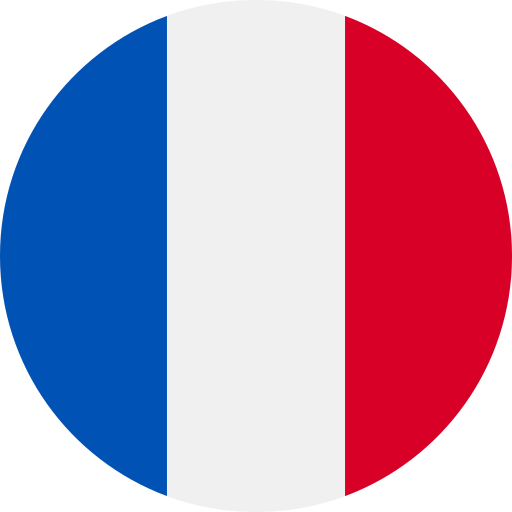









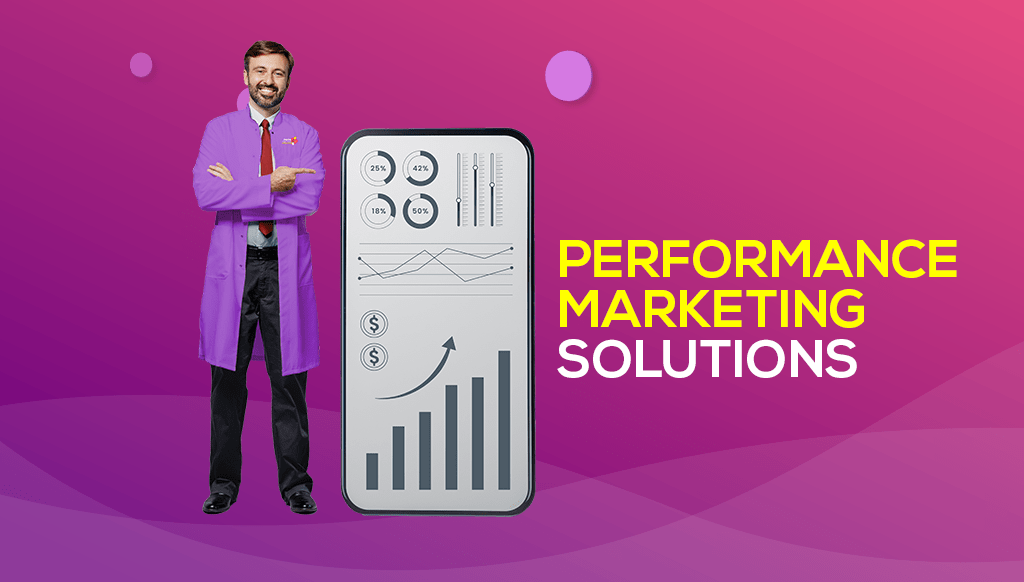
.png?v=1676960503)
















